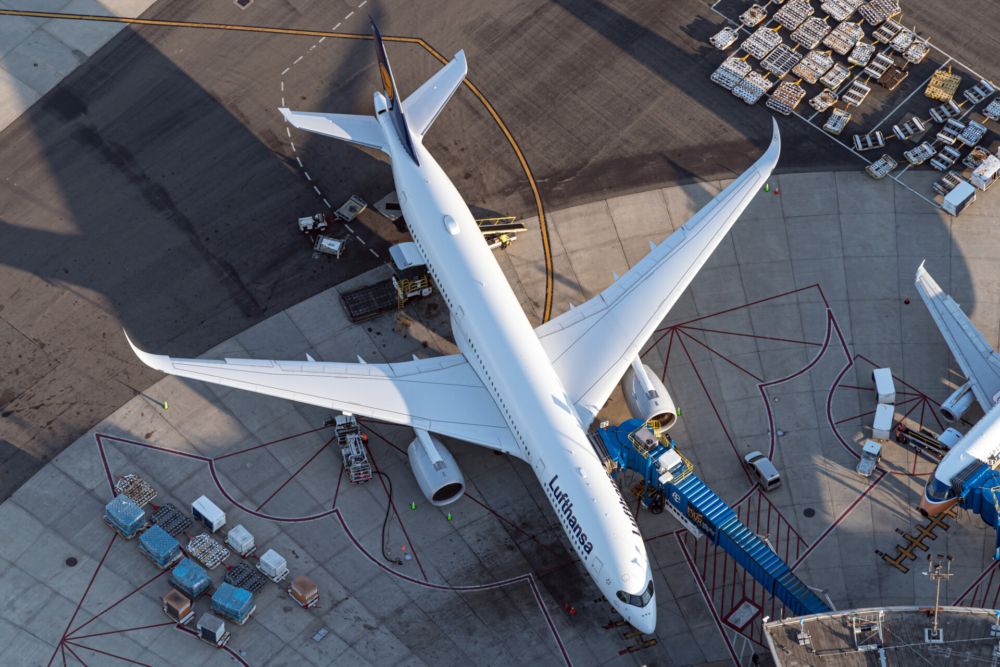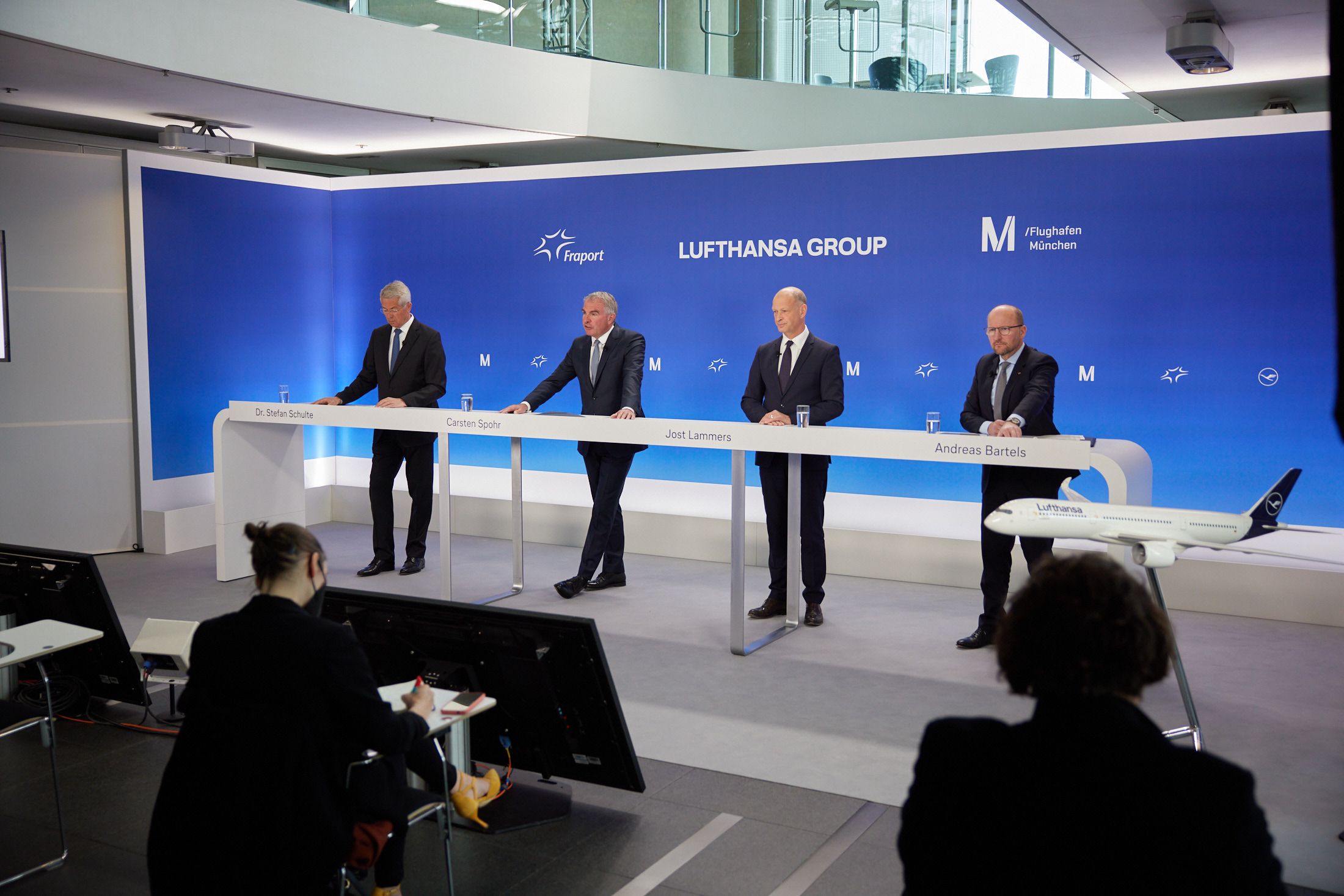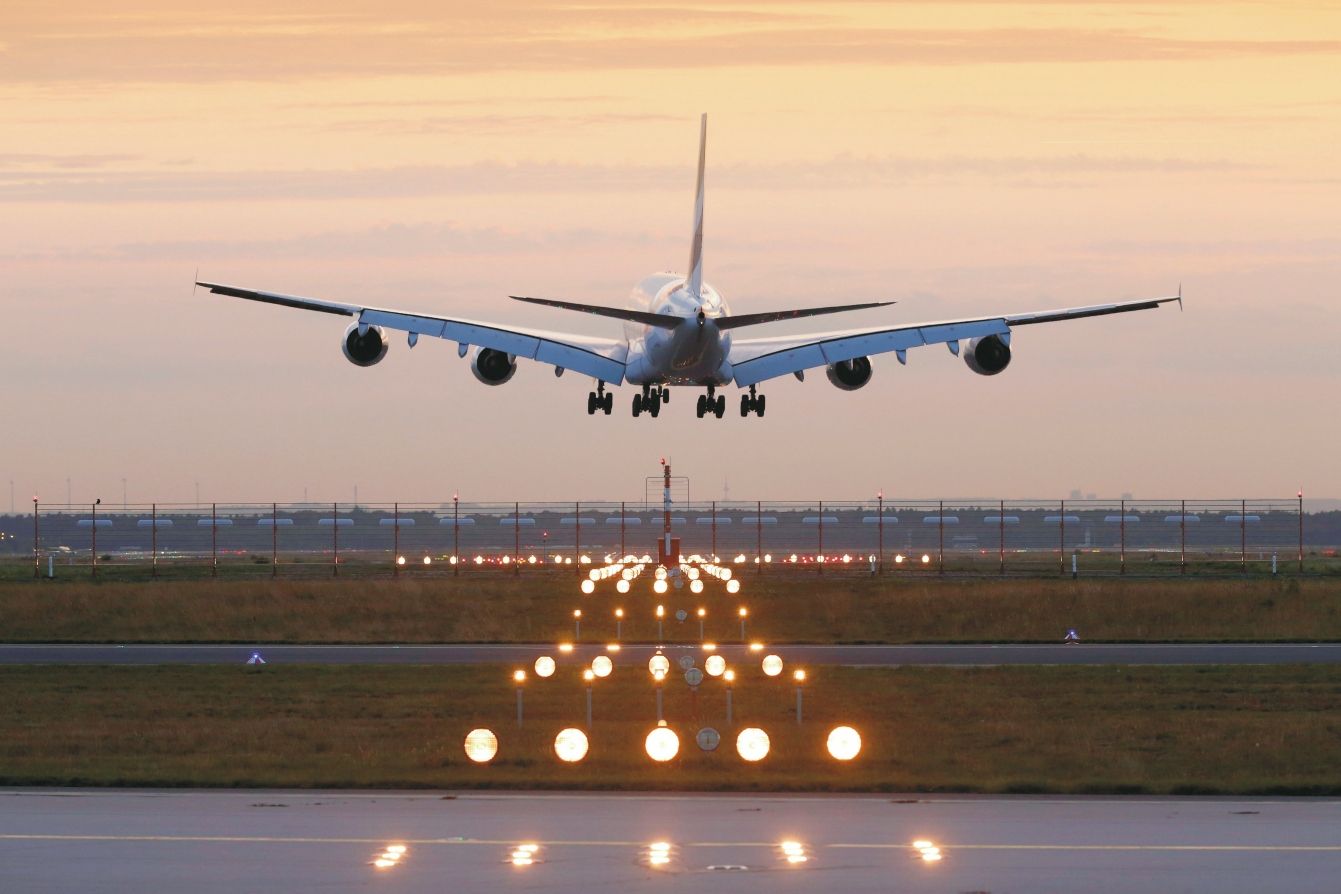While stating their general support for the European Union's climate agenda to make aviation CO2 neutral by 2050, Lufthansa Group, Fraport (which operates Frankfurt Airport, along with several others across the world), and Munich Airport are calling for policies that will not provide an unfair advantage to competitors from outside of the bloc.
Beyond commercial implications, creating an unlevel playing field for airlines and airports within and without the EU could cause so-called carbon leakage, the three major German aviation players said earlier today.
Kerosene tax, ETS, and SAF mandate
According to the EU's 'Fit for 55' package (so named from the target of reducing CO2 emissions by 55% by 2030), Brussels intends to introduce three specific measures to help reduce aviation's climate impact.
These are: introducing a kerosene tax, tightening emissions trading (ETS), and introducing an increasing blending mandate for sustainable aviation fuels (SAF).
The three companies joined forces for a press conference on Monday, saying that while they entirely support the EU's ambitious intentions, the decidedly stricter emission mitigation measures for operators from the EU need to be adjusted in the name of fair competition. Carsten Spohr, Chairman of the Executive Board of Deutsche Lufthansa AG, commented,
"It cannot be in the interest of the EU and Europe to put European aviation at a disadvantage with Fit for 55 and thereby weaken its international competitiveness. The carbon emissions of aviation would be shifted and not reduced with the measures that are currently planned. As a result, Europe would become more dependent on third countries regarding transport policy."
No more fuel tax exemption
European aviation still enjoys a fuel tax exemption. The Fit for 55 package proposes to change that by gradually introducing a kerosene tax based on energy content over a transitional period of ten years from 2023.
IATA has already flagged that this could be counterproductive to sustainable aviation targets, shifting CO2 emissions to other operators who may become more competitive and without any real climate benefits. Dr. Stefan Schulte, CEO of Fraport, added during the briefing that,
"Yes, we need more effort and speed in climate protection! It's not a question of 'whether' but one of 'how' to pursue ambitious climate policies. As such, we want to avoid the risk of carbon leakage and of competitive distortions. In other words, achieve effective climate action AND maintain connectivity and employment in Europe."
Changes to the emissions trading scheme
Meanwhile, the ETS and SAF blending mandate come up against less intense resistance from the German group of three. The EU Emissions Trading System was launched in 2005. If all Fit for 55 package proposals go through, 75% of EU emissions will be covered by a carbon price.
For aviation, the adjustments to the ETS mean a progressive phasing out of the free allowances distributed to aircraft operators. From 2024 to 2026, this will be by 25%, 50%, and 75% per year, respectively. Meanwhile, from 2027 it is to be phased out completely. The EU ETS would continue to apply to intra-EEA flights (as well as flights to the UK and Switzerland). All other international flights will need to be offset through CORSIA.
SAF blending mandate
For sustainable aviation fuel, the ReFuelEU proposal foresees a 2% blending obligation on fuel suppliers for SAF in 2025. This will then increase to 5% in 2030 to rise steeply to 32% by 2040 and 63% in 2050. There is also a specific sub-mandate for the use of so-called e-fuels.
Jost Lammers, CEO of Flughafen München, believes these to be more efficient tools than introducing a tax on conventional jet fuel. Mr Lammers stated,
"We need a fair and effective climate policy that does not put European airlines in a worse position than their competitors. A mere kerosene tax does not save a single gram of CO2. However, emissions trading and the SAF blending mandate, properly implemented do and are effective instruments for the desired decarbonization of aviation.”
What do you make of the EU's three preferred tools to combat aviation's climate impact, according to Fit for 55? Leave a comment below and share your thoughts.



